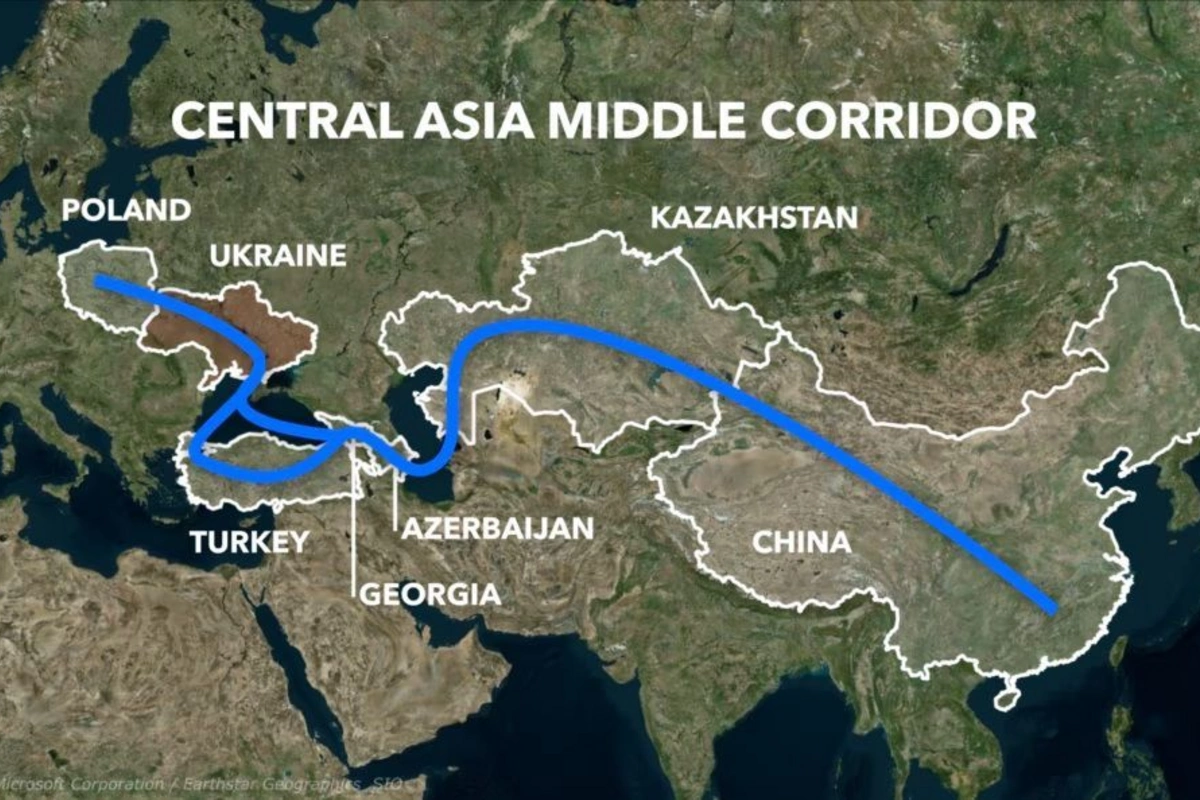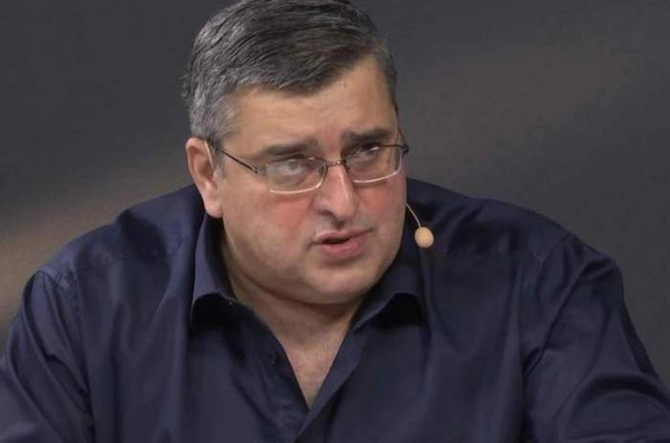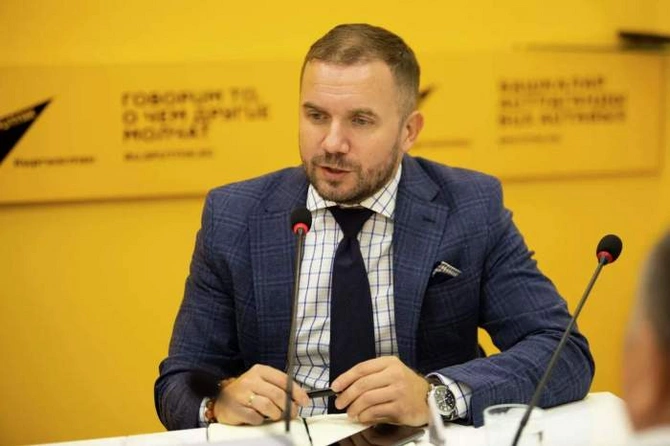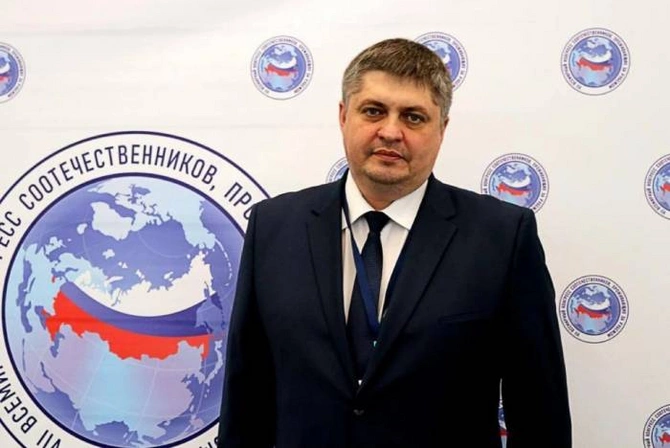
During his visit to Kazakhstan, Georgian Prime Minister Irakli Kobakhidze reaffirmed the strategic importance of trilateral cooperation between Georgia, Kazakhstan, and Azerbaijan in advancing the Middle Corridor-a key transit route linking China and Europe.
In a meeting with Kazakh Prime Minister Olzhas Bektenov in Astana, Kobakhidze emphasized that this partnership has played a pivotal role in the corridor’s development. The route, increasingly seen as an alternative to traditional transport pathways, facilitates the movement of containerized cargo between Asia and Europe while bypassing Russian territory.
To assess the broader implications of this initiative, News.Az consulted leading experts.

Gela Vasadze, a prominent Georgian political analyst, suggests that the term “Central Corridor” may be a more accurate descriptor. However, he argues that for the route to realize its full potential, Russia’s influence must be neutralized.
“The Central Corridor has the capacity to enhance the autonomy of Central Asian nations in much the same way that the Baku-Tbilisi-Ceyhan (BTC) pipeline empowered Georgia,” Vasadze explains. “Seizing this opportunity requires securing the backing of all stakeholders committed to its development while simultaneously countering Moscow’s efforts to dominate land-based transport routes from China.”
According to Vasadze, Russia views the corridor as a challenge to its economic leverage over the region. “Moscow will do everything in its power to control overland trade flows via the Trans-Siberian Railway, linking them to Georgia’s Black Sea ports,” he warns. “The greatest threat to both the Central Corridor and regional stability is the Kremlin’s determination to assert dominance.”
At the same time, Vasadze is deeply critical of Georgia’s current leadership.
“Kobakhidze is effectively aligning Georgia with Russia while attempting to placate neighboring states,” he argues. “Our regional partners may play along, but this approach fundamentally contradicts Georgia’s national interests, as well as those of the broader region. Moscow’s hold over Tbilisi will yield no benefits-this is a betrayal of the policies once championed by Eduard Shevardnadze and Heydar Aliyev.”

Stanislav Pritchin, a distinguished Russian historian and economist, offers a more measured perspective on the Middle Corridor’s viability. Speaking to News.Az, he notes that while the project has generated significant political and academic interest, logistical assessments present a less optimistic picture.
Citing a World Bank report, Pritchin states that the corridor’s long-term prospects remain uncertain. “Despite its potential to serve as a vital transit route for Kazakhstan, Azerbaijan, Türkiye, Georgia, and Uzbekistan, the Middle Corridor faces serious logistical and cost-related challenges,” he explains.
“The route spans an extended transport line, making it less competitive than shorter alternatives that pass through Kazakhstan and Russia directly into the European Union,” Pritchin says. “Freight transport along this corridor must also navigate multiple border crossings, which increases costs, while the need for transshipment across the Caspian Sea further complicates operations.”
Infrastructure remains a major hurdle. “The Baku-Tbilisi-Kars railway, a key component of the corridor, was halted for reconstruction last year,” he points out. “Even before that, the corridor’s total freight volume barely exceeded one million tons-an underwhelming figure for such an ambitious project.”
Port capacity is another concern. “The region’s port facilities-particularly in Kuryk, Aktau, and Azerbaijan-require substantial upgrades,” Pritchin adds. “Without modern container cranes and expanded logistics infrastructure, bottlenecks will persist.”
From a strategic standpoint, he remains skeptical about the corridor’s ability to compete with Russia’s established railway networks. “At this stage, it’s difficult to envision the Middle Corridor emerging as a viable alternative.”

Maxim Kramarenko, head of the Information and Analytical Center "Institute of Eurasian Politics" in Kazakhstan, presents a more optimistic outlook. Speaking to News.Az, he argues that the corridor’s development will significantly benefit Azerbaijan, Georgia, and Kazakhstan.
“These countries are already leveraging their geographic positions to facilitate rapid trade between China and Europe,” Kramarenko says. “Kazakhstan is taking the lead, but both Azerbaijan and Georgia are poised to become critical transport hubs along this route, spurring infrastructure development and job creation.”
Beyond Europe, he notes that the corridor offers access to North African, South Asian, and Southeast Asian markets, further strengthening its economic viability.
However, Kramarenko stresses that full integration into the broader Eurasian transport framework will be essential. “The real potential of the Middle Corridor can only be realized when it is positioned at the intersection of both latitudinal and longitudinal trade routes, with Kazakhstan serving as a key logistical hub.”
For Azerbaijan and Georgia, he concludes, this integration could open new economic opportunities, particularly in trade with India and the Middle East.
As the Middle Corridor gains traction, its geopolitical and economic significance continues to evolve. While some experts see it as a transformative project that could reshape Eurasian trade, others caution that significant infrastructural and logistical hurdles remain. What is certain, however, is that the corridor has become a focal point in a broader struggle over regional influence-one that is far from over.
Share on social media